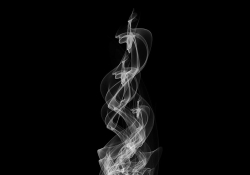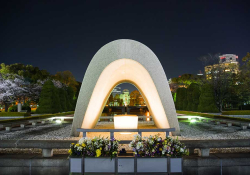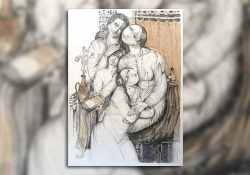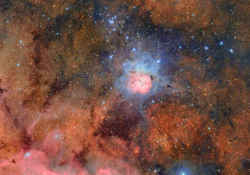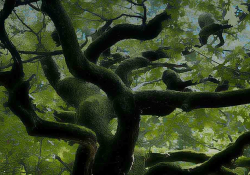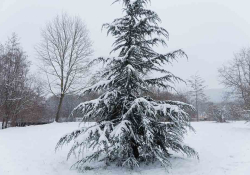Three Protest Poems Against the Violence in Israel
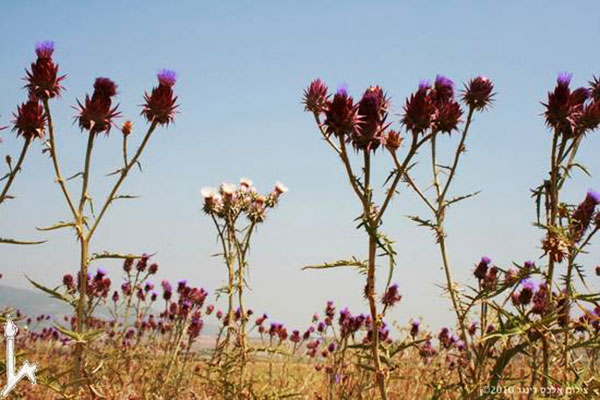
Introductory note by translator Rachel Tzvia Back
Tuvia Ruebner was born in Slovakia in 1924, immigrated to Mandate Palestine in 1941, and settled in the Jezreel Valley kibbutz of Merchavia, where he still lives today. His parents, little sister, and grandparents who remained behind were all murdered in Auschwitz in the summer of 1942. Thereafter, and inevitably, the devastation of the Holocaust became the prism through which this poet gazes at the world.
However, unlike the many politicians of our day who use the Holocaust as justification for policies of oppression, Ruebner insists that the evils of the Holocaust must lead us to greater acceptance of the other, greater compassion and tolerance, across every divide. Indeed, the evils that robbed him of his entire family, that robbed him of home and childhood, have led him to become a fierce poet of protest, against fundamentalism, land-idolatry, and against Israel’s intransigent occupation.
As a new wave of violence sweeps through Israel’s cities, Ruebner’s poems insist that we look at the tragedy of these dark times and, perhaps, be moved to change them.
Thus, at the age of ninety-two, having published sixteen poetry collections and having garnered every significant literary award in Israel and Europe, Ruebner continues writing—primarily protest poems. In the autumn of 2015 and through the winter of 2016, as a new wave of violence sweeps through Israel’s cities—a violence born of decades of oppression and resulting in children murdering children in the streets and being killed in turn—Ruebner offers us the following poems that insist we look at the tragedy of these dark times and, perhaps, be moved to change them.
These poems appear here in translated renderings before they even see light in their Hebrew originals.
* * *
Gaza Nightmare
by Tuvia Ruebner
They started it. They started. And so
we sowed and seeded their lands
till there sprouted like wildflowers
babies babies mother and father none.
Women like sea-winds search for their sons among
the ruins ruins ruins as far as the horizon dark
and demeaned, trembling, banished
from the sky smoothly emptying no shadow
no place to cover faces in shame, there’s no hiding
from ourselves because we cannot stop and compromise
a donkey smothers its head in the sand
its four legs kicking in the air until it cannot,
the gnarled hands of the old are outstretched
like a shadow toward the birds of prey and the fire
day after day and every night
in this chicken-dirt where there’s not not and not is.
Slain upon slain, tree beside tree
and a girl skipping at the finish line.
The Boy
by Tuvia Ruebner
The skies open.
Angels weep.
The boy’s face grew white and faded.
He who killed him has been killed.
The stars fall like leaves from the pecan tree.
His face grew white and faded. He who killed him
hasn’t been killed. God keeps time turning.
He will be and he was.
The boy’s face grows white.
Afterward he rises and rides away on his bike.
That’s what was and what will be.
God keeps time turning.
God – what a dream!
The pecan nuts are bursting forth.
The doctors work for the miracle.
Mother and Father
by Tuvia Ruebner
One can’t see not the mother not the father.
Also their daughter one can’t see.
Not in Gazarka Forest with its deep red trees
where the grandfather would rise early to mark the ones he had bought.
– What on earth was he thinking to take flight one day and become
a bird as tiny as a tiny cloud? –
One can’t see them
not in the Trnava region, not in Senica district.
Not in the Jezreel Valley.
Not on the street leading to the Basilica
of the Virgin of the Seven Sorrows.
Sedembolestnej Panny Mariae
Not in June 1942.
And not in October 2015.
The place is so hollow one can see right through it.
How empty it all is!
What nothing.
Translations from the Hebrew
By Rachel Tzvia Back
